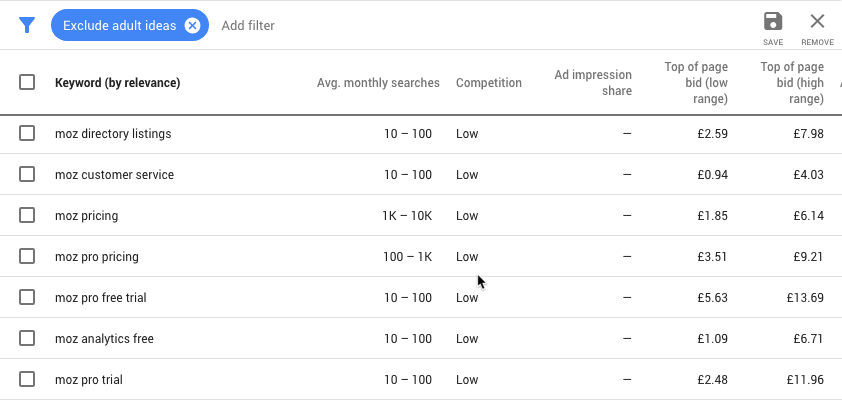Keyword research in niche industries can significantly impact your website’s performance and overall business growth. We’ll cover practical steps for identifying niche-specific keywords, explain where to use them, and explore how they contribute to better site ranking, more relevant traffic, and a higher return on investment (ROI). If you want to improve your SEO strategy and attract the right audience, you’re in the right place.
What Are Niche Keywords and How Do They Benefit Your Business?
Niche keywords are specific phrases that target a particular audience or market segment. They’re usually longer and more focused than broad keywords, aiming to capture the attention of people looking for something particular.
These niche keywords help businesses stand out and connect them with the right audience. Let’s see how they differ from competitive keywords and why they’re valuable for your business.
Competitive vs Niche Keywords: What’s the Difference?
Competitive keywords are broad, high-volume search terms. Think of phrases like “fitness tips” or “smartphones.” These keywords attract a large number of people but face intense competition. Everyone, from big brands to small blogs, is trying to rank for these terms, which makes it harder for smaller businesses to stand out.
On the other hand, niche keywords are much more specific, focusing on a smaller audience with unique needs. They may have low search volumes, but they’re easier to rank because fewer businesses compete for them. For example, instead of using a competitive keyword like “laptops,” a niche keyword would be “affordable, lightweight laptops for college students.” This caters to a specific group with a particular need.
Examples of Niche Keywords
- Competitive keyword: “Organic skincare”
Niche keyword: “Organic skincare products for acne-prone oily skin” - Competitive keyword: “Fitness training”
Niche keyword: “Strength training workouts for people over 50.”
These examples show how a general term can be refined into a more focused phrase that targets a specific customer group.
How Niche Keywords Benefit Your Business
Higher Conversion Rates
Niche keywords are incredibly effective at driving higher conversion rates. Why? Because the people searching for niche terms already have a clear idea of what they’re looking for. They’ve moved past the research phase and are ready to buy. If someone searches for “customized dog collars for large breeds,” they’re much more likely to purchase than someone simply searching for “dog collars.”
Improved Content Relevance
When your content is created around niche keywords, it becomes highly relevant to a specific audience. This improves the relevance of your content, making it more engaging and valuable for the people who visit your website. For example, a blog post optimized for “budget travel tips for families with toddlers” will resonate more with your target audience than a generic travel guide.
Long-Term SEO Scalability
Building a niche keyword strategy also leads to long-term SEO scalability. You establish authority in your niche by ranking for more minor, less competitive terms. Over time, your site gains traction and ranks for more related keywords, steadily and effectively growing your online presence.
When Should You Use Niche Keywords?
There are specific situations where using niche keywords makes more sense than aiming for broad, competitive ones. Here are a few scenarios:
You’re in a highly saturated market

In competitive industries, niche keywords allow you to form your own space. If you’re running an online clothing store, ranking for “women’s clothing” could take years. But a niche keyword like “boho-style summer dresses for tall women” lets you focus on a smaller, more engaged audience.
You serve a specialized audience
Businesses catering to a specific group, whether an age group, profession, or hobby, will find niche keywords especially valuable. For example, selling products for “professional portrait artists ” ensures you reach the right audience.”
It would be best if you attracted a local audience
For a local business, niche keywords that include geographic locations are essential. Phrases like “best vegan bakery in Austin” or “affordable pet grooming in San Francisco” help drive local traffic more likely to visit your store in person—even more niche phrases based on your offerings.
You want to drive highly targeted traffic to your website and social media
Niche keywords help you bring in highly relevant traffic, meaning visitors are genuinely interested in your product or service. Someone searching for “sustainable, eco-friendly sneakers for runners” is much more likely to convert than a casual visitor looking for general show recommendations.
You’re launching a one-of-a-kind product or service
When introducing something new, niche keywords can help reach people looking for unique solutions. Since your offering breaks new ground, potential customers won’t know its exact name but will search for the problem it solves or its standout features. For example, if you’re launching the first-ever wearable translator for real-time conversations, a keyword like wearable device for instant translation” will help you attract tech-savvy individuals looking for unique solutions. This ensures your distinctive product receives early adopters and stands out in the market.
6 Steps to Conducting Keyword Research in Niche Industries
Keyword research in niche industries requires a targeted, thoughtful approach. Instead of casting a wide net, you’re zooming in on specific, highly relevant terms that speak to a smaller, more defined audience. This ensures that your content is aligned with the needs and interests of potential customers, making your efforts more effective.
Here are six essential steps for conducting keyword research in niche industries, with examples to help illustrate how each step can apply to your business.
Define Your Niche Target Audience
The first step is to identify and understand your niche audience. In a niche market, your audience is often more specialized, so you need to narrow down who they are and their specific needs. Start by asking yourself a few key questions:
- What are their pain points?
- What problems do they need to solve?
- What are they passionate about?
For example, suppose you sell handmade organic pet products. In that case, your target audience isn’t just pet owners – eco-conscious pet owners are likely to search for keywords like “organic pet shampoo for sensitive skin” rather than the broader “pet shampoo.”
By defining your audience early, you can focus your keyword research on terms specific to your ideal customer.
Research Common Questions and Topics
Once you know your audience, research the types of questions they ask and the topics they care about. You can find these by checking forums, social media groups, and review sites. You can also see what people discuss in blogs or video comments.
For example, if you run a blog about sustainable travel, you might notice people asking, “How can I reduce my carbon footprint while flying?” This gives you keyword ideas like “eco-friendly air travel tips” or “reduce carbon footprint while traveling.”
Focusing on people’s questions will help you find niche keywords that match what your audience is searching for.
Use Niche Keyword Research Tools

Now that you know what your audience is searching for, use tools like Google’s Keyword Planner, Ubersuggest, or AnswerThePublic to discover relevant keywords. These tools can give you more keyword ideas and data on search volume and competition.
For example, if you’re in the gluten-free food business, tools might suggest terms like “best gluten-free snacks for kids” or “gluten-free meal prep ideas.” These keywords are more specific and help you reach the right audience.
Using these tools helps you find keywords that fit your niche and are worth targeting.
Analyze Competitor’s Keywords
Take a look at what keywords your competitors are using. This can give you insights into what’s working for them and where you might find opportunities. Tools like SEMrush or Ahrefs let you see what keywords drive traffic to your competitors’ sites.
For example, if your competitor ranks well for “organic pet treats,” but you notice they aren’t targeting “grain-free organic pet treats,” this gives you a chance to focus on that specific keyword and attract customers they’re missing.
By analyzing competitors, you can find gaps in the market and position yourself more effectively.
Evaluate Keyword Metrics
Only some keywords are worth targeting, so looking at the numbers is essential. Check metrics like search volume, competition, and keyword difficulty score to decide which keywords are right for your business.
For instance, “minimalist living tips” might have many searches and stiff competition. On the other hand, “minimalist living tips for small spaces” could have fewer searches and less competition, making it easier for you to rank and reach your target audience.
Focus on keywords that give you the best chance to rank and attract traffic in your niche.
Monitor Keyword Performance
After you’ve started using your keywords, monitor their performance. Use tools like Google Analytics or Google Search Console to track your rankings, click-through rates, and traffic.
If you notice that a keyword like “eco-friendly home decor” isn’t driving much traffic, you might want to refine it or try a similar keyword. Tracking performance helps you adjust your strategy and keeps your content relevant.
Where to Use Niche Keywords
Niche keywords can be effectively integrated across various parts of your site:
- Blog posts: Create content that answers specific questions your audience is searching for.
- Product pages: Ensure your product descriptions include keywords highlighting your unique offerings.
- Meta descriptions: Optimize these for SEO to increase your page’s visibility in search results.
- Social media posts: Use keywords in posts to drive traffic from your social channels back to your website.
What can ProjectSEO do for you?
When managing a niche business, finding the right keywords is essential for connecting with your target audience. Broad keywords are often missed because they need to address the specific needs of your customers. Instead, niche keyword research must be precise, targeting unique products or services that resonate with your market.
At ProjectSEO, we specialize in helping businesses like yours find traffic-generating keywords tailored to your niche. Our team can assist you in identifying the best niche keyword opportunities, boosting your website’s search rankings, and driving highly relevant traffic that converts. With our support, you can enhance your online presence and see measurable improvements in your business.
Book a free consultation with us today, and let’s discover the keywords that will drive your niche business forward.






